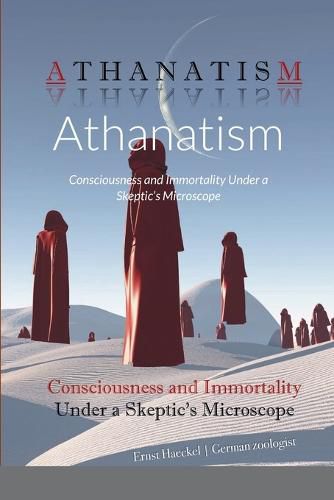Readings Newsletter
Become a Readings Member to make your shopping experience even easier.
Sign in or sign up for free!
You’re not far away from qualifying for FREE standard shipping within Australia
You’ve qualified for FREE standard shipping within Australia
The cart is loading…






This title is printed to order. This book may have been self-published. If so, we cannot guarantee the quality of the content. In the main most books will have gone through the editing process however some may not. We therefore suggest that you be aware of this before ordering this book. If in doubt check either the author or publisher’s details as we are unable to accept any returns unless they are faulty. Please contact us if you have any questions.
I find it quite remarkable that an evolutionary zoologist working in the latter part of the 19th century could be so prescient about the utility of studying consciousness from a purely physicalist perspective. While Ernst Haeckel (1834-1919) was readily aware that many of his colleagues held dualistic views on the nature of self-awareness (a soul apart from the body), he saw more clearly than most that such supernatural conjecturing was both unnecessary and non-progressive. By focusing our attention on the sensible world, and in particular the brain, we can develop a much deeper and richer understanding of how and why consciousness must have emerged in the first place. If, however, we adopt a purely spiritualist perspective, arguing that the "soul" is non-material, then we have basically put a halt to any scientific study of the very biochemistry that gives rise to varying degrees of consciousness. Haeckel points out that our own self-awareness is a natural phenomenon and not something part from the world we inhabit. As he so clearly states, "We shall see that consciousness is simply a natural phenomenon like any other psychic quality, and that it is subject to the law of substance like all other natural phenomena."
$9.00 standard shipping within Australia
FREE standard shipping within Australia for orders over $100.00
Express & International shipping calculated at checkout
This title is printed to order. This book may have been self-published. If so, we cannot guarantee the quality of the content. In the main most books will have gone through the editing process however some may not. We therefore suggest that you be aware of this before ordering this book. If in doubt check either the author or publisher’s details as we are unable to accept any returns unless they are faulty. Please contact us if you have any questions.
I find it quite remarkable that an evolutionary zoologist working in the latter part of the 19th century could be so prescient about the utility of studying consciousness from a purely physicalist perspective. While Ernst Haeckel (1834-1919) was readily aware that many of his colleagues held dualistic views on the nature of self-awareness (a soul apart from the body), he saw more clearly than most that such supernatural conjecturing was both unnecessary and non-progressive. By focusing our attention on the sensible world, and in particular the brain, we can develop a much deeper and richer understanding of how and why consciousness must have emerged in the first place. If, however, we adopt a purely spiritualist perspective, arguing that the "soul" is non-material, then we have basically put a halt to any scientific study of the very biochemistry that gives rise to varying degrees of consciousness. Haeckel points out that our own self-awareness is a natural phenomenon and not something part from the world we inhabit. As he so clearly states, "We shall see that consciousness is simply a natural phenomenon like any other psychic quality, and that it is subject to the law of substance like all other natural phenomena."